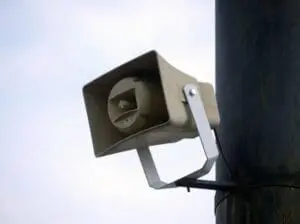Manhattan, Kan. — A little stress, says Bradley Dirks, is not such a bad thing. It can motivate us to go beyond the norm, perhaps perform at a level never before imagined.
But Dirks – a behavioral health specialist with K-State Research and Extension – recalls a cliché when describing what happens when one stressor is layered upon another and another.
“It’s like the straw that breaks the camel’s back,” he said.
Among other negative outcomes, the COVID-19 pandemic added stress to many people’s lives. Beyond that, “we deal with stress every day,” Dirks said.
“We could be doing fine today, then the next thing happens,” he said. “We adjust, show resiliency…but then something else occurs.”
Mental health professionals often prescribe habits that help people manage stress, including eating right, sleeping 7-8 hours a day and exercising regularly. Dirks, who has practiced psychiatry for many years, has an additional suggestion: Have fun.
“We get so focused on completing our (daily) tasks – and that’s understandable – but what can you do to enjoy the day?” he said. “Hunting, fishing, go to a movie – whatever you do for fun is important. If you can build that into your day or week, take a break and do something you can enjoy. You’ll find that’s a good way to reduce stress. If you can keep that down, then when those things come that challenge us, we have more reserve. If we don’t keep stress at a lower level, then we overflow when something comes.”
Dirks, who grew up in less-populated communities, is particularly concerned about those who live in rural areas. He said a common thread of small town living is that people pride themselves in being self-sufficient.
“If we see something, we solve the problem; we do whatever it takes,” he said. “When it comes to mental health, that becomes a problem because not all of us are equipped to manage those stressors as we are to change oil in the car, mow the lawn or do those physical things.”
One solution, Dirks adds, is watching out for one another.
“You don’t have to be a therapist to intervene,” he said. “You just have to say, ‘hi, what’s going on,’ and be willing to listen. We’re not good at seeing our own levels of stress or distress, but we are a little better at seeing it in others. If we can see others around us that are at that point, maybe you can meet once a week, sit and have coffee and talk.”
Dirks is part of a multi-disciplinary team at K-State that includes extension agents across the state that are trained to help Kansans manage stress in their lives. The group has published resources and other ways to receive help online.
“We don’t have all the answers,” Dirks said, “but we know where to find the answers, or who we can connect people with. K-State Research and Extension agents and specialists can be amazing connecting points for people who ask, ‘where is this’ or ‘how can I get help.’
“There is so much help available. I encourage people to connect with local (extension) agents, specialists and the website.”
More information and resources related to coping with stress are available online from the K-State Research and Extension bookstore (search for “Stress”), or by contacting your local extension office.












